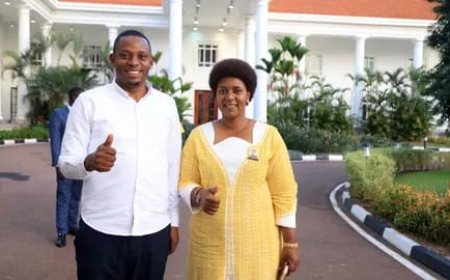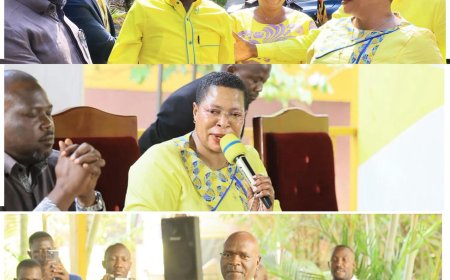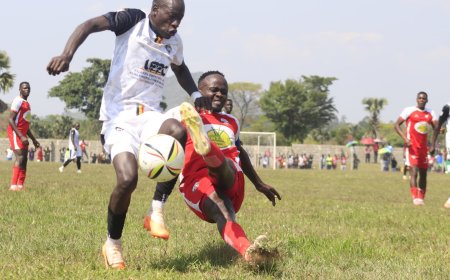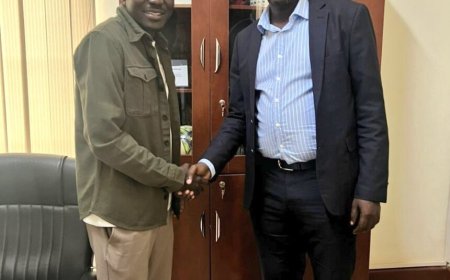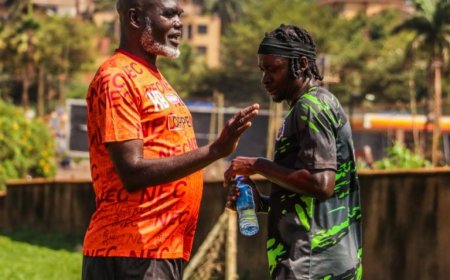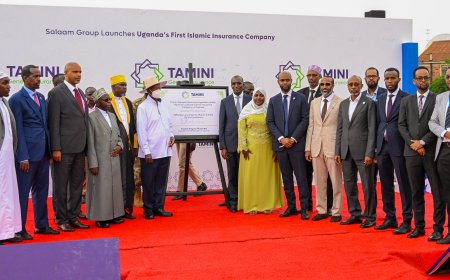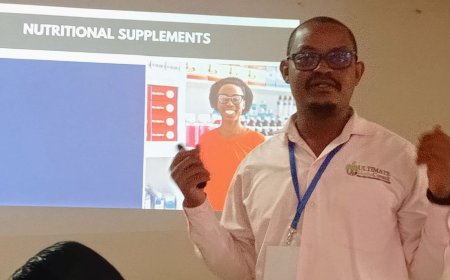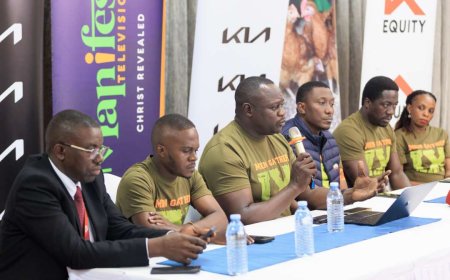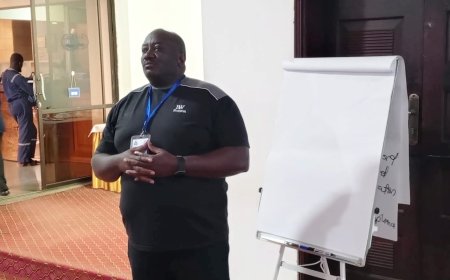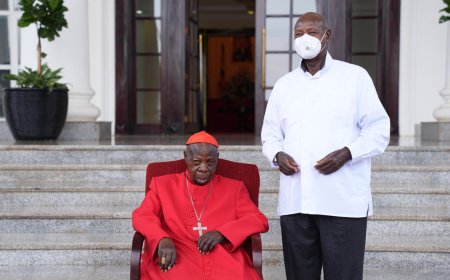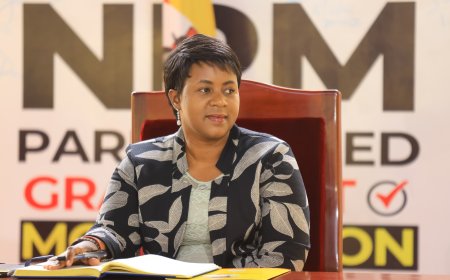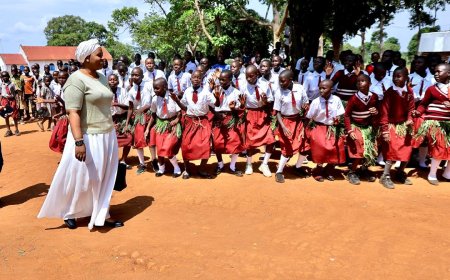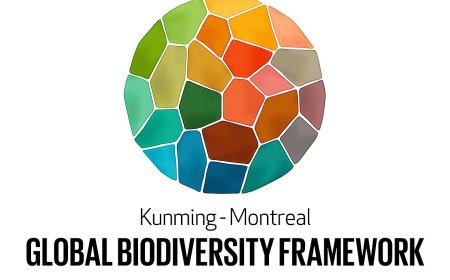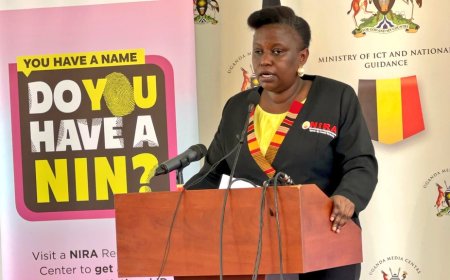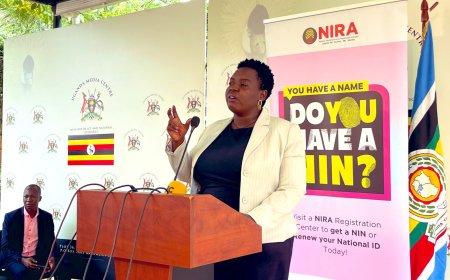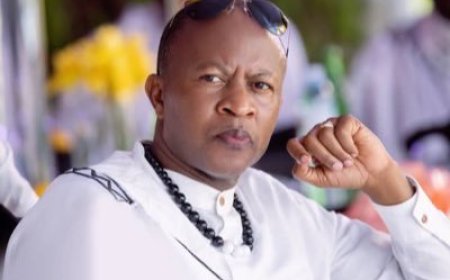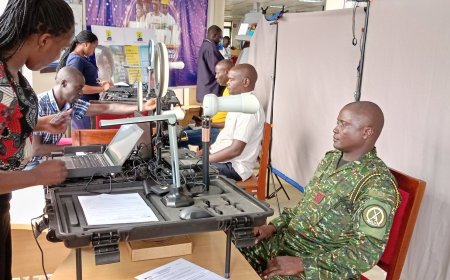Breaking Barriers: FOWODE Calls for Inclusive Leadership and an End to Electoral Violence on International Women’s Day 2025

As Uganda joins the world in commemorating International Women’s Day on 8th March 2025 under the theme “For ALL Women and Girls: Rights. Equality. Empowerment,” the Forum for Women in Democracy (FOWODE) has reaffirmed its commitment to breaking systemic barriers that hinder women’s political participation. The organization has also raised concerns over electoral violence, which continues to be a significant threat to women’s leadership and democratic progress in Uganda.
Speaking at a press briefing held at FOWODE’s offices in Ntinda, Ms. Georgia Tumwesigye, the Women and Leadership Program Manager at FOWODE, emphasized that while Uganda has made strides in promoting gender equality through constitutional provisions and affirmative action, women still face numerous obstacles, particularly when vying for direct political seats.
Women’s Representation in Uganda: The Glass Ceiling
Uganda’s legal framework, including the 1995 Constitution and the Gender Policy, recognizes equality between men and women. However, the reality on the ground paints a different picture. Although affirmative action has enabled women to achieve a 30% minimum representation in politics, they have never surpassed 35% representation in Parliament. The 11th Parliament of Uganda currently has 33.8% female representation, with only 7.4% of these women winning direct seats. The situation is even worse at the local government level, where only five women (3.42%) serve as LCV Chairpersons, compared to 141 male counterparts (96.58%).
FOWODE’s 2021 post-election report, Deterred Not Barred, revealed that over 60% of women candidates in the 2021 elections faced deeply entrenched stereotypes, intimidation, and even threats of sexual violence and property destruction. Such hostile environments deter women from competing in elections, further widening the gender gap in leadership.
Condemnation of Electoral Violence in Kawempe North By-Election
FOWODE strongly condemned the ongoing electoral violence witnessed during the Kawempe North by-election campaigns, describing it as a serious setback to Uganda’s democratic progress. Electoral violence violates fundamental human rights, suppresses voter participation, and discourages women from actively engaging in leadership roles.
Hon. Winnie Kiiza, a veteran politician from the Alliance for National Transformation (ANT), echoed FOWODE’s concerns, stating that "the increasing hostility towards female candidates must be urgently addressed if Uganda is to build a truly inclusive democracy."
FOWODE called upon all stakeholders—including the Electoral Commission, security agencies, political parties, the judiciary, civil society, and the media—to take urgent action to create a safe and inclusive electoral environment for all women and girls.
Key Concerns and Recommendations
Ending Electoral Violence to Promote Women’s Political Participation
Electoral violence remains a major barrier to women’s involvement in politics. The fear of violence and intimidation prevents many women from voting, contesting, or even supporting female candidates.
Recommendations: Security agencies (Police, Army, and Electoral Commission) should enforce zero-tolerance policies against electoral violence and ensure perpetrators are held accountable. Gender-sensitive security training should also be prioritized.
Political parties and leaders should publicly denounce electoral violence and promote peaceful electoral processes.
The Judiciary must demonstrate impartiality in handling electoral violence cases and ensure swift prosecution of gender-based electoral violence. Courts should also align their rulings with international agreements such as CEDAW (Convention on the Elimination of All Forms of Discrimination Against Women) and the Maputo Protocol.
Dismantling Gender Stereotypes in Leadership
Despite evidence that women are equally capable of leadership, harmful cultural narratives continue to label direct seats as "men’s seats". These stereotypes discourage women from competing for positions beyond those reserved under affirmative action.
Recommendation: Policymakers, civil society organizations, and the public must actively support women aspirants, particularly in direct political seats. This will help correct historical imbalances and tap into women’s full leadership potential ahead of the upcoming 2026 General Elections.
Strengthening the Role of Civil Society and Media in Promoting Women’s Leadership
The media and civil society organizations play a crucial role in reshaping societal attitudes toward women in leadership. However, negative portrayals and biased reporting continue to limit women’s visibility in politics.
Recommendations: The media should increase coverage of women leaders and actively challenge stereotypes that undermine female candidates.
Civil society organizations must continue advocating for gender-sensitive policies and electoral reforms to enhance women’s representation.
Empowering Families and Communities to Champion Gender Equality
Gender equality begins at home. Families must challenge traditional biases and encourage girls to aspire for leadership roles.
Recommendation: Parents and guardians should support their daughters’ ambitions and instill confidence in them from a young age.
Communities must recognize and celebrate women leaders as role models for future generations.
Call to Action: A Commitment to Women’s Rights, Equality, and Empowerment
As Uganda commemorates International Women’s Day 2025, FOWODE is calling upon all stakeholders to take decisive action to ensure that:
Elections are peaceful, free, and fair, allowing women to participate equally and safely.
Systems that protect, mentor, and elevate women leaders are strengthened, ensuring Uganda meets its constitutional and global commitments to gender equality.
All citizens observe law and order during elections, and candidates exercise mutual respect to foster a democratic and inclusive electoral process.
"We cannot achieve progress when half the population fears violence or is sidelined by prejudice. It is time to rise, demand action, and create a Uganda where every woman and girl thrives, leads, and shapes the future." — FOWODE
About FOWODE
Forum for Women in Democracy (FOWODE) is a national women’s rights organization that emerged from the Women’s Caucus of Uganda’s 1994-1995 Constituent Assembly. This caucus played a significant role in shaping Uganda’s gender-responsive 1995 Constitution.
FOWODE envisions “a Ugandan society where women and men equally participate in and benefit from decision-making processes in public and private spaces.” The organization achieves this through community empowerment, policy advocacy, and strategic partnerships, championing gender equality and inclusive governance.
The press conference was attended by prominent leaders and gender equality advocates, including:
Raymond Ruyoka, Regional Director of ACHA-Africa
Hon. Winnie Kiiza, Senior Leader, Alliance for National Transformation (ANT)
Georgia Tumwesigye, Women and Leadership Program Manager at FOWODE
Charity Lenia, Former Deputy Guild President, Makerere University Business School (MUBS)
As Uganda continues to advance toward gender equality, urgent reforms and deliberate efforts are needed to ensure women enjoy their full rights and participate equally in leadership. FOWODE’s call to action is clear: Uganda must commit to ending electoral violence, dismantling gender stereotypes, and fostering inclusive leadership.
This International Women’s Day, let us all stand together to build a future where every woman and girl has the opportunity to lead, thrive, and contribute to national development.
